
At one point, 30 days used to be the most common length of time for a young horse to go into training with a professional. But these days I see more horses staying between 90 to 180 days of training. The shift in time spent with a colt starter is an effort to provide the owner with a horse that they can confidently go home and ride, or help prepare the horse for the next step in his professional training and show career.
Each horse advances at his own pace, whether you put him on a 30-, 60-, or 90-day timeline. This means that one horse may be further along at the end of 30 days than another. It also means that by the 60-day mark that second horse could end up surpassing the first horse in ability. By giving your horse trainer ample time to work with your young horse you also give your horse time to develop at his own pace without being pressured or overwhelmed.
I’ll outline what you can do at home to prepare your horse before you send him off for training, and then go over some of the basic skills you can expect your horse to have after a certain period of time, so you can make an educated decision on what timeframe is best for your horse. Once he’s ready to come home, I’ll go over some of the things you can do with him to keep furthering his education.
At Home
Before you send a child to kindergarten, they know their ABCs, 123s, and can usually spell their name. You prepare them for school with these basic skill sets to make their formal education easier. The same logic can be applied to your horse. Working with your young horse at home prior to sending him to a trainer helps him transition into your trainer’s program a little quicker.
This story is from the Summer 2021 edition of Horse and Rider.
Start your 7-day Magzter GOLD free trial to access thousands of curated premium stories, and 9,000+ magazines and newspapers.
Already a subscriber ? Sign In
This story is from the Summer 2021 edition of Horse and Rider.
Start your 7-day Magzter GOLD free trial to access thousands of curated premium stories, and 9,000+ magazines and newspapers.
Already a subscriber? Sign In
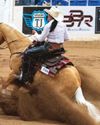
The Horse
LIFE TAKES US DOWN different paths, but I seem to be on just one, which is with the horse.
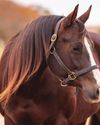
Decoding the Diseases Examined by AQHA's Six-Panel Test
The six-panel test is a diagnostic tool used to assess the genetic predispositions of horses. It's meant to discover if a horse has or is a carrier for certain hereditary diseases and traits.
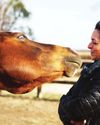
Love is Good
All horses are assured a hopeful, compassionate plan of care at This Old Horse, a program that helps not only horses but people, too.

HORSE PACKING 101
Take your trail riding to the next level with nature-filled adventures in the back or front country.

NEW HORSE; NEW PROBLEMS
Anew horse can bring excitement and energy to the barn, and even reinvigorate your passion. However, there are also a myriad of new problems that can come with a new horse, so learn how to introduce him properly to avoid these common issues.
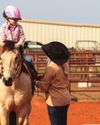
First-Timer Tips
Heading to a young rider's first event with their horse can be intimidating. Use these myths and truths to make it smoother sailing for yourself and your young rider.
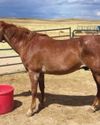
Re-Rescued: Aslan's Story
One special gelding learns about three different types of love during his rescue journey.
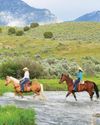
The Country's Hottest Horse Motels
Take your next trail-riding adventure to the next level by staying at one of these six horse motels across the United States.
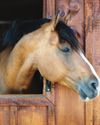
Outbreak! What We've Learned
Learn how disease outbreaks in recent years have changed the horse industry, and why it's so important to play your part when it comes to disease prevention efforts.

TRAINING THE SENSITIVE HORSE
Shift your mindset and grow your sensitive horse's pressure-handling skills to improve his confidence and your riding enjoyment.